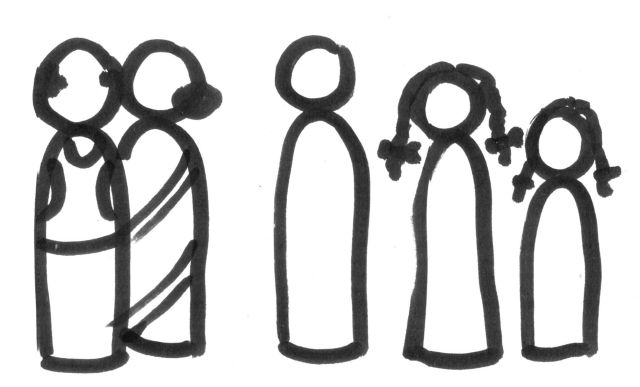CHURCH 15 - FOUNDATIONS FROM GENESIS
Genesis 1:1
In the beginning God created the heavens and the earth.
- This is a foundational sentence and needs to be looked at very carefully:
- In Hebrew the sentence (and the Bible) starts – appropriately – with the word ‘God’: ‘Elohim beresit bara …’ Elohim is the Hebrew word for Creator God.
- Let’s think about this sentence some more:
| GOD (created the) | HEAVENS (and the) | EARTH |
|---|---|---|
| Creator | created | created |
| was already here | appears now | appears now |
| has no beginning | has a beginning | has a beginning |
| eternal, pre-existing, not eternal no equal, one of a kind | many things | many things |
| Owner | his possession | his possession |
| Authority | under him | under him |
| Life-Giver | keeps receiving life | keeps receiving life |
| Source | existing by him | existing by him |
| Independent | dependent on him | dependent on him |
| Reason | consequence, fruit | consequence, fruit |
| Maker | reflects the maker | reflects the maker |
- God has no equal. He is one of a kind, unparalleled. Islam teaches this well.
- As a creature, where does my fear, my worship, my unconditional obedience belong?
- > only to the Creator, the One behind all creation, never to creatures
- > no tree, no river, no sun, no star, no spirit, no human, no husband, no wife, no child is ever capable of taking the role of God, nor worthy to do so.
- > theses things are not God. They do not have the power to be what God needs to be, they cannot carry my life, they cannot give me meaning, they are good things but too small things. These things will fail me if I make them ‘god’.
- > worship, trust, utter reliance, complete obedience belong only to God. My life, my identity, my reason for being, my meaning in life comes from God. To seek it elsewhere is to set myself up for both heart ache and sin.
- Another application: do not fear creatures. No need to fear humans, no need to fear spirits, they are simply our co-creatures.
- Sometimes people worry about ‘extraterrestrial beings’. Even if they existed, they simply would be other creatures of God. If they were beings with no conscience, they would be one more kind of animal. If they were beings with conscience, they would be in the same class as humans and bound by the same law and morality as we are. > So no reason to worry at all.
- A question that is not directly answered in this sentence is: Why does God create the heavens, the earth, us? Typical answers include:
- to get our worship, honor
- to get relationship, fellowship
- to get subjects for his kingship
- to get servants
- How good are these answers?
- Never forget: God has lived for all eternity past till the moment he creates without any of this, without our worship, without our fellowship, without our service
- God doesn’t need anything. He isn’t dependent on anything. He doesn’t need our worship in order to be God – he is God! He doesn’t need our prayers to act – he acted long before anybody prayed.
- The problem is with the word ‘get’. God doesn’t create to ‘get’ anything. He is fullness in himself, life, light, beauty, existence, richness all is in him.
- So he doesn’t do this to ‘get’ anything, he creates to ‘give’. Give life, existence.
- He is generous. He wants there to be things other than himself. He creates beings and powers other than himself, not to get, but to give … that’s his character.
- And yes, he wants relationship with us, he rejoices at our worship … but is is not the “fuel” he runs on. The fact we have the power to touch, to make glad the heart of God himself (wow!) is his gift to us; he gives of significance and calling. It’s the humility of God that we can give him something at all.
- We tend to say: God needed fellowship. Is that so? Was God alone before he created us humans?
God is a Trinity
- Ge 1:1 In the beginning God created God the heavenly Father
- Ge 1:2 and the Spirit of God hovered God’s Spirit the Holy Spirit
- Ge 1:3 and God said: “Let there be…” God’s word the Son, Jesus
- John, in his poetic retelling of the creation of the earth, puts it this way (Jn 1:1-3)
- “In the beginning was the Word, and the Word was with God, and the Word was God. 2 He was in the beginning with God. 3 All things came into being through him …”
- John continues to make clear who the Word is (Jn 1:14): “And the Word became flesh and lived among us, and we have seen his glory, the glory as of a father’s only son, full of grace and truth…” Jesus, the Word of God.
- In Colossians Paul puts it this way (Col 1:16-17): “for in him all things in heaven and on earth were created … all things have been created through him and for him. 17 He himself is before all things, and in him all things hold together.”
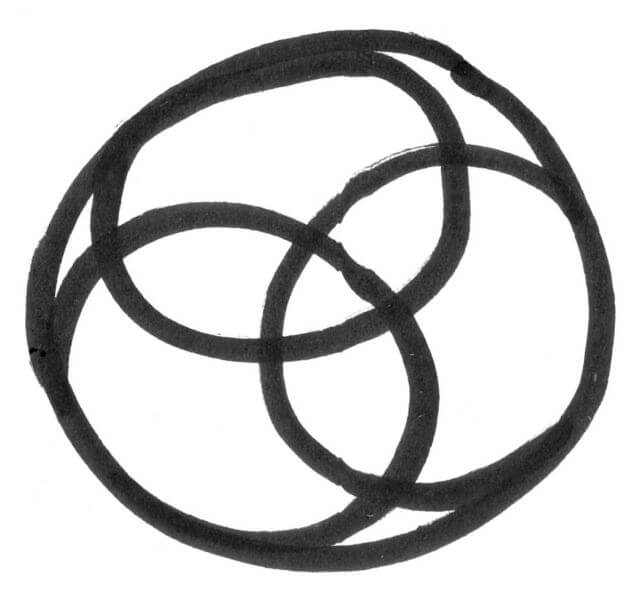
- So in the first three verses of the Bible, at the very beginning, we see hints that God is a Trinity.
- Also: The word used for ‘God’ in Hebrew in Gen 1:1 is “Elohim”, which is a plural!!
- H430 ‘ĕlôhı̂ym אֱלֹהִים – Plural of ‘eloah’ H433; meaning gods in the ordinary sense; but specifically used (in plural thus, especially with the article) of the supreme God
- Even though the full revelation of God as a Trinity only comes with the New Testament, already in the Old Testament there is much evidence if we look carefully. Examples:
- Gen 1:26b “Let us make humans in our image”, a clear plural where we didn’t expect it!
- Deu 6:4 is a very important text to the Jews. It is called the ‘Sh’ma’, the confession of faith: “Hear, o Israel, the Lord your God is one” (literally: ‘they are one”). It’s interesting that at the very heart of the Monotheism in the Jewish faith lies this sentence containing a plural.
- Isa 9:6 has another curious reference to the Trinity: “For a child has been born for us, a son given to us; … he is named … Mighty God, Everlasting Father”
- Psa 110:1 David says from his perspective: “The LORD (Jehovah) says to my lord (Adon)…” Jesus uses this Scripture to shake up the overly sure Pharisees in Mrk 12:36. See also Prv 30:4 and Isa 42:1.
- In summary: The Trinity is by no means an New Testament invention! It is foundational truth throughout the Bible.
- But what is the Trinity? It is hard to explain, especially to those of Monotheistic faiths. Sometimes Christians ‘wish it wasn’t there’, because it is hard to explain.
- But God is a Trinity, whether you like it or not, whether you understand it or not, whether you can explain it or not.
- God did not ask for your permission to be triune, He is triune, and we better get used to the fact, and try to get our brains around it.
- We will find as we continue: though we cannot easily understand the Trinity, it is a foundational reality that is reflected everywhere and is essential to biblical thinking.
- God the Father, God the Son, God the Holy Spirit, three persons but one God.
- For a more detailed teaching see CHU 13 – The Triune God.
- For our purposes here, let us look at one aspect of the Trinity:
- God is a Trinity. That is: God is a God of relationship. There is relationship withing God, within the Trinity. Though many other descriptions of God can rightly be given (“God is Almighty” etc.), this is the most basic description: God is a Trinity.
- If God is a God of relationship, what is the relationship within the Trinity like?
- Many NT scriptures come to mind:
- At Jesus’ baptism we see the Trinity in action: when Jesus takes baptism in obedience to the Father, the Father says “This is my beloved Son with whom I am well pleased”, and the Holy Spirit descends on Jesus (Luk 3:21-22).
- Or at Jesus’ transfiguration on the mountain a voice from heaven says: “This is my beloved Son, listen to him!” (Mrk 9:7).
- Jhn 14:9 has ‘seeing Jesus’ = ‘seeing the Father’. Jhn 14:7 has ‘knowing Jesus’ = ‘knowing the Father’. Jhn 5:17 has Jesus working as the Father is working. Jhn 5:19 has Jesus only doing what the Father is doing. Jhn 5:21 has as the Father gives life, so the Son gives life. Jhn 5:23 has “whoever honors the Son honors the Father”.
- Jesus also talked about the Holy Spirit, who will come in his stead (Jhn 14:16, 18), who will remind the disciples of Jesus’ words (Jhn 14:26), who will lead them into all truth (Jhn 16:13, Jhn 14:17, 26), who will be an Advocate (Jhn 14:16), who will enable them to do greater deeds than Jesus (Jhn 14:12) … and the Holy Spirit does exactly that.
- The Father answers Jesus’ prayer at Lazarus’ grave. The Father is affirming Jesus publicly with a voice from heaven at his baptism, transfiguration and in Jhn 12:28.
- In summary: How does the Trinity relate to each other? What is their relationship like?
- Honoring each other, recommending each other
- preferring one another
- representing one another, explaining one another
- submitting to one another, obeying one another
- they are in complete unity of purpose … yet different in role and function
- they are in unity, though they are not the same.
- When God through Jesus is commanding us to ‘love one another’ (Jhn 15:12) and ‘prefer one another’ (Php 2:3) he is only commanding us what he has been obeying within the Trinity from eternity past till now.
- God does not command what he is not himself willing to keep. Application: Do not command, what you are not willing to do yourself! Really!
- And: If this is the quality of relationship found in the Trinity, this has to be the model for human relationships as well. What a standard!
- Note that their relationship is not hierarchical! There is diversity, but there’s unity.
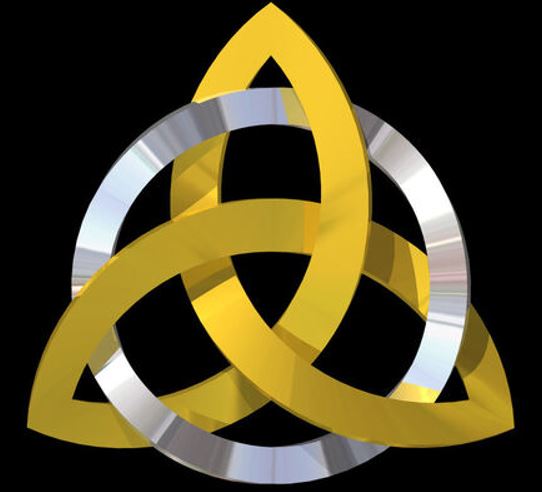
Heaven & Earth
The word “heaven” in Hebrew is שָׁמֶה שָׁמַיִם “shamayim shameh”, a plural.
- There is only one word for heaven in Hebrew, but it is used in many different ways. A Word study on “heaven” yields 4 major uses:
- 1 Where the birds fly and the clouds float ‘sky’ ‘আকাশ’ (we often count that as part of earth)
- 2 Where the moon, sun, stars are ‘universe’ ‘মহাবিশ্ব’ (we often count that as part of earth)
- 3 the world of spirits ‘spiritual world’ ‘আত্মিক জাগত’
- 4 where God reigns ‘heaven’ ‘স্বর্গ’
- Be aware that there are these 4 uses, so as to prevent confusion:


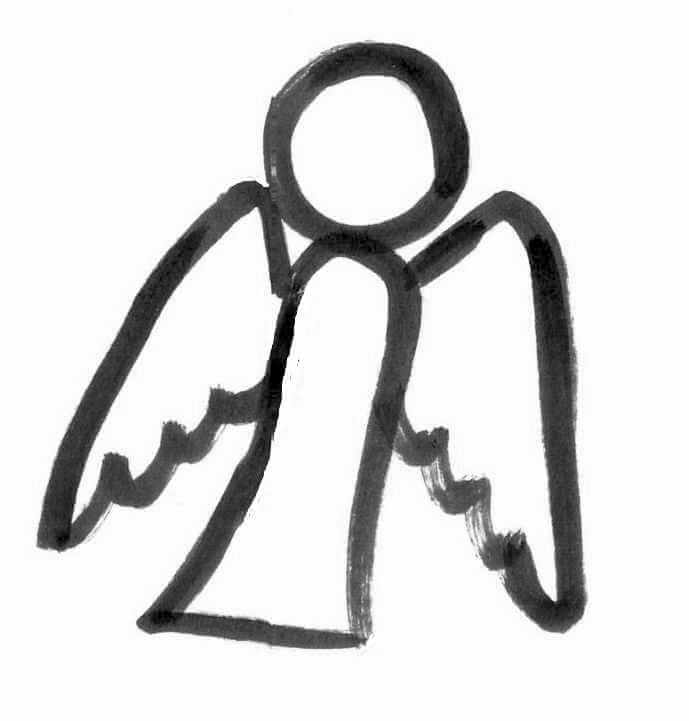

Some examples:
- Gen 1:26 humans have dominion over the birds of the air (> 1 ‘sky’)
- Deu 4:19 do not worship heaven’s stars, sun, moon (> 2 ‘universe’)
- Eph 6:12 mentions evil forces in the heavenly places (> 3 ‘spiritual world’)
- Job 1:6 Satan comes before God (> 3 ‘spiritual world’)
- Mth 6:10 Jesus: ”your will be done on earth as it is in heaven” (> 4 ‘where God reigns)
- But mostly heaven and earth are mentioned together, meaning the total of God’s creation, like here in Gen 1:1.
- In today’s language and thinking we often lump (1) and (2) together with the earth. It then becomes: division into the spiritual world (heaven) and the physical world (earth).
- Often Christians believe: ‘spiritual world = good’ and ‘physical world / body = evil’. We say things like: ‘we should not be worldly, but spiritual’ … ‘this body only brings me into temptation’ … ‘the physical world is doomed anyway’ … ‘we will go to heaven, as spirits into a spiritual heaven’ … ‘Jesus comes back and will rapture us away from the physical world’ … ‘working for this world is worldly’ … ‘only ‘spiritual vocations are spiritual’
- But is this biblical thinking? Not really. Let us debunk this thinking:
- If the physical world is bad, why then did God make it? And declare it “very good” (Gen 1:31)? If this body is only a temptation, why did God create is and keeps giving life to it? If this body leads us to sin, then how did Satan sin, who has no body but is a spirit? If spiritual = good, why then are there evil spirits like Satan in the first place? If the “fruits of the flesh” in Gal 5:19 are ‘problems due to the body‘, why has over half of the list nothing whatsoever to do with the body (like anger, strife, competition, jealousy, factions …)? If the body is evil and no physical world will remain, why does God give Jesus a physical resurrection body? If this physical world is doomed and unimportant, why the will God make a new heaven and a new earth? (Rev 21:1)
- Our thinking is clearly confused. We need to re-establish some basic Biblical truths:
- God created the spiritual world & physical world
- God wanted the spiritual world & physical world
- God declared the spiritual world & physical world … to be good
- God keeps giving life to the spiritual world & physical world
- Sin entered both the spiritual world & physical world
- Both the spiritual world & physical world … are needing redemption
- Both the spiritual world & physical world … will be judged
- in 2 Pet 3:7 spiritual world & earth are burned up
- in 1 Cor 15:42, 51 we will be changed, the perishable will be raised imperishable
- in Col 1:20 he will reconcile all things (visible and invisible) to himself …
- in Rom 8:17-23 creation will be redeemed with the sons of God
- in Rev 21:1 spiritual world and earth will be made new …
- So, no: ‘spirit = good’ is not true, rather there are both good and evil spirits
- So, no: ‘physical world / body‘ = evil is not true, these things are given to us by God, and can be used rightly as Jesus demonstrated. “For God so loved the world…”
- So ‘being spiritual’ does not mean being ‘spirit only’ but it means to be ‘led by the Holy Spirit in all areas of life, practical and otherwise’
- We Christians need to recover an appropriate love and care for this physical world
- For more details see teaching unit ‘SCI 09 – Heaven and Earth‘
Three Creation accounts
- Gen 1:1 1st creation account focusing on who created
- Gen 1:2-2:4 2nd creation account focuses on on what was created
- Gen 2:5-25 3rd creation account focusing on how humans were created
Genesis 1:2-1:27
- What are the repeated words or themes in this text? Many could be mentioned:
- God’s evaluation at the end of each day … “good”
- God evaluating his own work > evaluation is a good and needed thing
- God rejoicing over the work of his hands > we should also have joy in good work
- God is declaring all things spiritual and physical ‘good’
- The creation of this world is not a mistake, it is not an ‘unlucky accident’ (like in Greek mythology), it is planful, intentional, purposeful, celebrated and done with care & joy!
- God is creating by separating, by ‘differentiating out’ 5 times … Gen 1:4 light & darkness … 1:6 water & sky … 1:9 sea & land … 1:18 night and day … 2:21 man and woman
- Differentiation is a good thing. Complementing each other is a good. Being different is good.
- God is creating in an orderly fashion and sequentially: first realms to live in, then creatures to live in them. Water, Sky, Land > water animals, birds, land animals
- Evening and morning the 1st, 2nd, 3rd, 4th, … day
- God creates different ‘kinds’. Each is according to its ‘kind’. Bananas are not apples, dogs are not cats, and don’t need to be. God creates diversity and loves it.
- Application: We have very narrow ‘beauty ideals’, how something should be (Illustration: wedding make up at beauty parlors, beauty pageants).
- God doesn’t share this narrowness. He doesn’t want ‘everything the same’, he created originals, and wants originals. One Aiswarya Ray, one Sharuk Khan is enough, thank you very much, no more needed. Proverb: ‘All people are born as originals. Most people die as copies’.
- Application: we need to find a ‘yes’ to who we are, how we look, what gender we were born into, what nation we were born into, what families we were born into, what abilities and personalities we have. Don’t say: ‘if only’.
- Warning: do not criticize what God has made, neither in yourself, not in another! Isa 45:10-11 says in no unclear terms: “Woe to anyone who says to a father, “What are you begetting?” or to a woman “With what are you in labor?” Thus says the LORD, the Holy One of Israel, and its Maker: Will you question me about my children, or command me concerning the work of my hands?”
- Do not criticize how God made you. Do not criticize how God made another person. You have no right to do so. You are attacking the Creator. How dare you?
- This brings enormous freedom: the only person I need to be is me. No pride. No shame. No other demands.
- Repeated theme: ‘seed’, ‘blessing to multiply’ (Gen 1:22 to fish and birds, Gen 1:28 to humans). God wants and celebrates growth, development, increase, pass down.
Concept of Time


- Another repeated theme is time: ‘there was evening and there was morning’ … 1st day, 2nd day, 3rd day, 4th day etc. What is the significance of this?
- In the beginning not only ‘heaven’ and ‘earth’ were started, but also ‘time’ and ‘history’
- Time is important. Time is linear. Though there are cyclical aspect to time (day-night, monthly moon, yearly seasons), time in total is linear and goes forward. Why is this important? In philosophy there are two views of time: linear time (Christianity) and cyclical time (Hinduism, Buddhism).
- If time is cyclical history will always eventually come back to where it is now.
- That means: whatever I as a human may do, decide, try, attempt … at the end of the day I will not produce any lasting change … all will come back to what was.
- Therefore human choice, work, effort have no ultimate value. Therefore there is no real responsibility, no real possibility for change, no real hope. I am a victim of fortune, fate & environment. Also there is no real accountability, no hardcore evidence to prove anything, ‘nothing happened’ … and that will affect justice systems.
- If time is linear this means that: my decision today will create a new reality for tomorrow, every little faithfulness, service, obedience to God’s voice today will have an eternal effect. Therefore human choice, work, effort has ultimate and eternal importance, what will be is co-decided today. Example: Salvation.
- Therefore there is real responsibility, real power to influence something, change is possible, hope is real, accountability is built in. I with God can make a difference, I can make history. Everything is important.
- Illustration: I throw a stone in a pond. Does it dissolve into the water with no change … or does it create ripples that go on till eternity?
Diversity
- Creation reveals the Creator. Illustration: Cooking dinner … I will know something about the cook. Using the toilet after you, tells me something about who you are.
- Creation is beautiful > God is beautiful. God loves beauty
- Creation is powerful > God is powerful
- Creation is diverse > God is diverse … ???
- Is he? Yes, God is diverse: the Trinity.
- So we shouldn’t be surprised: Creation, God’s handiwork, reveals something about its Creator: it reveals tremendous diversity: thousands of tastes, textures, colors, shapes, forms, spices, smells, functions.
- There are 30’000 types of trees alone, millions of different species. We are still discovering today and cataloging more ‘formerly unknown species’ every year.
- But even within species: no two leaves are alike, no two snowflakes alike, no two finger prints, no two proteins (> DNA analysis).
- What is the real root of diversity? The Trinity itself … there is diversity within God, there are 3 different persons, but one God.
- Therefore diversity is godly, it is good thing. It is not only tolerated, it is wanted, commanded, celebrated! “there was a great multitude that no one could count, from every nation, from all tribes and people and languages standing before the throne and before the Lamb” (Rev 7:9).
- Looking at creation we hear in its overwhelming diversity the melody of the Trinity: Diversity is good! Looking out the window we get a taste of the Trinity and its importance.
- Contrast to Islam (a Monism): one language, one culture, one holy place, one way to have your hair, your beard, one color for your dress, one kind of prayer … which gives great unity and strength, but cannot fully affirm diversity. Freedom is a thing to fear.
Sequence
- God > humans > animals > plants > inanimate world. There are several divisions:
- 1 “God” and “creation” (humans, animals, plants, inanimate)
- 2 “image of God” (humans) and “just reflection of God” (animals, plants, inanimate)
- 3 “living” (God, humans, animals, plants) and “inanimate” (stones, water, planets)
Humans
- Gen 1:26 … a fascinating small insight into how the Trinity decides! … “Come, let us …”, no command of ‘you do it!’ This speaks of communication, suggestion, discussion, evaluation, agreement, consensus decision, ownership in the decision. What a model!
- Gen 1:26 … “Let us make humankind in our image, according to our likeness … 27 So God created humankind in his image, in the image of God he created them, male and female he created them”.
- What does is mean for humans to be “in the image of God”?
- Humans have been given by God: person-hood, they are a ‘self’, they are self-aware, have a mind, thinking, reason, emotions, conscience, will, power to decide, power to act. In this they are like God, by his gracious gift.
- How are humans not like God? Well, they are created, he is not.
- God is all-powerful, humans have some power. God is all-knowing, humans have some knowledge. God is omnipresent, humans can only be one place at one time. God is unlimited. Humans are limited.
- Also: we shouldn’t make conclusions about ‘how God looks’ by looking at humans. Physical representations (statues, drawings) are forbidden in the 2nd commandment.
- After Jesus came, – him having become ‘visible’ -, the total picture prohibition is lifted. But not: There is not one single physical description of Jesus in the entire New Testament (and God surely wanted it so). Otherwise we would come up with bad theology ‘Jesus had brown eyes, only brown-eyed people can get saved’ or some other nonsense.
- Gen 1:27 breaks into poetry (so amazing this is!), a 3 line parallelism:
- 1 So God created humankind in his image
- 2 in the image of God he created them
- 3 male and female he created them
- The parallelism makes clear that both man and woman are in the image of God.
- This is the first mention of gender in the Bible. We have much to say about gender (whose hair is how long, who cooks etc.) but really, when God introduces the topic of human gender, what does he say? And what does he not say?
- Gen 1:26 men are created by God women are created by God
- Gen 1:26 men are wanted by God women are wanted by God
- Gen 1:27 men are in the image of God women are in the image of God
- Gen 1:28 men are blessed by God woman are blessed by God
- Gen 1:28 men are given authority to rule women are given authority to rule.
- We define gender by differences, God in his foundational statements about gender stresses only their sameness! There is nothing in Gen 1 that suggests a difference.
- And even in Gen 2:23 … when Adam finally sees Eve, he is not shocked at such long hair, but rather says: “at last, bone of my bone and flesh of my flesh” … the stress is not on difference, but on sameness, on equality, on fitness, on appropriateness, for each other (animals not being appropriate! see Gen 2:20). Adam essentially says: Finally somebody like me! In all of Genesis 1 & 2 the tenor is not difference, but rather: sameness, appropriateness, fitness for each other.
Why did God create gender?
- The typical answer that is given: for procreation, so that there would be children.
- This answer is fine. God has chosen for offspring to be conceived through the relationship of the genders.
- But is this really the core reason? God created many forms of procreation in nature that are not gender-based (Example: snails), or where the same organism is both male and female, or even first male and then female. So God has created procreation without gender. But for humans he did it differently.
- So more foundationally: Why did God create gender?
- Ge 2:21-22 describes woman being created out of man, the 5th time there is a ‘differentiation’ in the creation account after 4 occurrences in the first chapter. Out of a not-differentiated thing make two differentiated beings.
- The word “Adam” (H121 אָדָם) is actually a plural, in English often rendered “human-kind” (‘আদামরা’ to express this in Bangla). All through chapter 1 and 2 it remains a plural, until Ge 2:23, when it turns into a singular: Adam (‘আদম’ singular!) on seeing Adama (‘আদামা’ singular!) says: “at last, bone of my bone and flesh of my flesh …”
- Ge 2:21 stresses that it was from the side that Eve is made, not from the head (indicating woman’s superiority), not from the foot (indicating woman’s inferiority). God creates a horizontal picture, an even picture, them side by side, standing with each other.
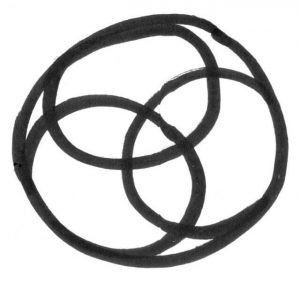
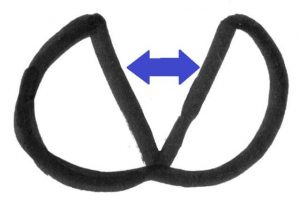
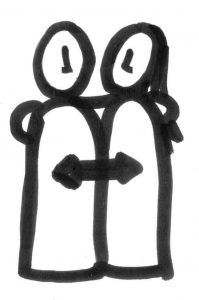

- If we with our sinful hearts hear that one got differentiated out into two beings, we jump and ask: Who got what? Who got more? Who is higher? But these are the biases of our sinful hearts, but not what the Bible text actually implies.
- The real question we must ask is: Why are there two genders? What can two people in relationship with each other reveal about God that one person alone cannot? In whose image are we??
- In the image of a Trinity! … To reveal a Trinity there must be either three, or at least two. Therefore humans are created in two genders. Two people in relationship with each other can show something about the nature of the Trinity that one person alone never can.
- Illustration: One human alone on an island … how can he reveal love? service? respect? Justice? It’s not possible to reveal that, for all these things are characteristics that only show in how I treat another being.
- Again we hear the melody of the Trinity in the reality that we are: gender.
- Gender is created to reveal the Trinity: diversity yet unity … mutual love, service, respect, … as is lived out every day within the Trinity
- Application: Your relationships must reveal the Trinity. Your relationships must be in the image of the Trinity!
- The quality of relationship that is in the Trinity therefore is the standard for human relationships: primarily for marriage, but also for all human relationships in general: Love, honor, respect, represent, serve, prefer, obey and submit to one another!
- The famous Gen 2:18 … “It is not good that man should be alone”, our favorite marriage ceremony verse comes into a new light: It does not mean one must marry (Jesus didn’t marry either and fulfilled God’s will). It doesn’t mean if you are unmarried you are only half a person. But it does mean that humans are made in the image of the triune God of relationship, therefore humans are creatures made for relationship.
- Gen 2:18 God will make a ‘helper fit for him’, an ‘ezer neged’ נֶגֶד עֵזֶר in Hebrew.
- ‘ezer’ is translated: partner. The literal translation is: ‘helper’.
- Careful with our culture-influenced thinking: ‘Helper’ does not mean maid or servant.
- ‘ezer’ is used 16x in the OT, 1x here about a wife, 1x about a political deliverer and 14x as a description for God. Therefore ‘ezer’ does not mean maid, rather it is a powerful term, mostly used of God himself “God, you are my help and my deliverer” (Psa 70:5), denoting somebody with the power to help, not somebody weak or subservient.
- ‘neged’ is translated ‘fit for him, appropriate, partner, counterpart’, which means simply that: one like him, one appropriate, one fit, a description stressing evenness.
Relationship with creation
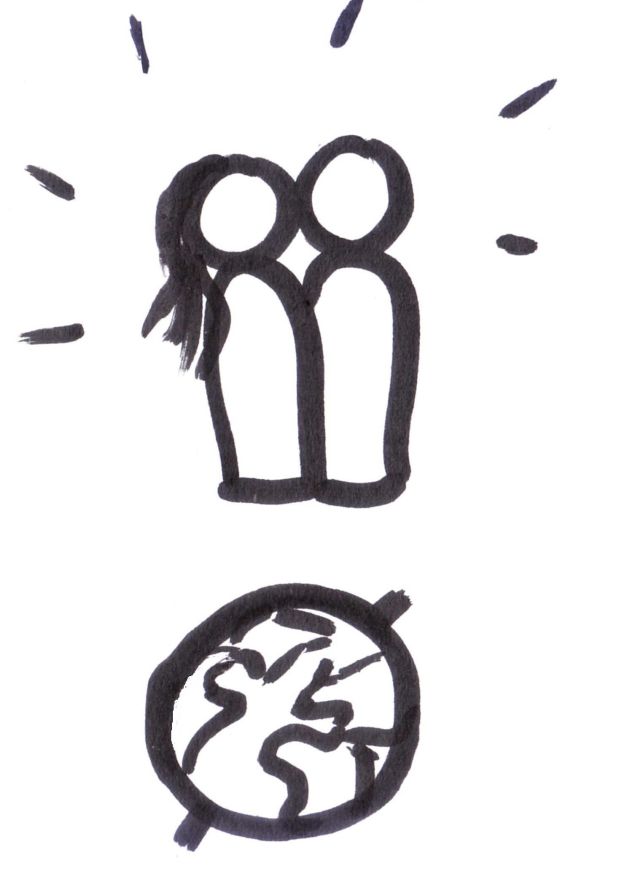
- Gen 1:26 or Gen 1:28 ”fill the earth and subdue it; and have dominion over the fish of the sea and over the birds of the air and over every living thing that moves upon the earth.”
- Dominion, authority, leadership is here conferred by God (who is the true Authority and King) to humans, both man and woman together. God gives away power.
- What does dominion mean? We think: dominion means commanding others to work.
- Illustration: Adam to Eve: Sweep! Eve, also ruling, tells the monkey: Sweep!
- They have been delegated authority to, they are the care-taker government, the stewards on site, representing God on earth, to till it and develop it.
- In the Bible: authority = work = responsibility = accountability. In the Bible there is no such thing as ‘having the position but not doing the work’
- This defines man’s relationship with nature: creation is submitted under humans > authority is given.
- But: The stewards (humans) are accountable to the Owner (God) > authority is limited
- East, Animism, Hinduism, Buddhism humans subjugated to nature
- West, Atheism, humans ruling over nature
- Biblical view humans ruling but preserving
- Illustration East: farmer, farming, trying not to offend any spirit, if offended > sacrifice
- Illustration West: one life, no eternity, now I need to enjoy, buy the life I want
- The Eastern one doesn’t understand his authority, the Western one doesn’t understand his accountability.
- Dominion means to develop, to investigate, to do research, to innovate, to try out, to improve, to increase, to multiply … > this is a command for Science
- For details see ‘SCI 03 – Foundations for Science‘.



Human work
- Gen 1:28 authority and responsibility given, implying work
- Gen 2:15 “God took the man and put him in the garden of Eden to till it and keep it”
- Gen 2:19 animals brought, named by Adam, implying work, categorization
- Clearly, therefore, work was commanded to humans before the fall, that is: in the perfect, sinless world. Work is God-commanded. Work is good.
- Work is not a punishment for sin, not a revenge, not a curse. Work was part of Paradise. it will be part of heaven also (!) … no good thing will be missing in heaven.
- What is the purpose of work?
- To produce what is needed (food, clothes, houses), what is useful (light bulbs, buckets) and what is beautiful (decorations, fashion, art)
- to provide for myself and my family
- to serve others, to produce valuable goods
- to glorify God
- Work gives me significance, importance, contentment, satisfaction, dignity
- All types of work are equally important: Adam is a farmer, Abraham a shepherd, Amos a tree dresser, Jesus a carpenter, Peter a fisher, Paul a tent maker.
- East: Work is a burden, only because this miserable body binds me to this unreal world, this world is not real, not worth my work
- West: Work is needed to get the money to afford myself the life I want.
- Biblical: as above. This world is worth my work, all work is valuable.
- Illustrations: Govt office. Chair stories. Contrast: bosses leaving last in the West
- For more details see teaching unit ‘ECO 04 – Work & Rest’.
Multiplication
- Gen 1:22 animals (water / air) commanded to be fruitful and multiply
- Gen 1:28 humans commanded to be fruitful, to multiply, fill the earth
- Congratulating to the Bangalis for their obedience to this command!
- How do Bangladesh’s indigenous populations feel about this increase??
- We have grown up hearing that Overpopulation is Bangladesh’s number one problem.
- What a contrast to our current thinking! What to do?
- Was this command given in the beginning only (when all was empty)? Did God ever take this command back (now there are too many)?
- Deu 1:10-11 When Israel is around 2 Million people (Exo 12:37 600’000 men), Moses prays that they would multiply a 1000 times more! That would come to 2 Billion of just one nation. Today world’s population is at 7 Billion.
- We say: Population is the problem! God says: Population is a blessing!
- To qualify: injustice to indigenous is exactly that: injustice. Some people have five pregnancies back to back not because they want to, but because the first four were girls.
- Yet still: What do we do when we find in the Bible a views so radically different?
- Thomas Malthus said in 1798: exponential population growth, but only linear food production growth > massive famines. His first prediction for food running out: 1890 AD.
- Yet this never actually happened. Though indeed today’s population could definitely not be fed by 1900’s food production, today the world can feed its population.
- What does a country’s riches depend on?
- Natural resources? yet Japan, Switzerland have none … India has all.
- Colonialism? yet Portugal is poor, and former colonies like Singapore are rich. Never colonized Thailand is poor and never- had-a-colonial-empire Switzerland is rich.
- Amount, fertility of land yet Singapore, Hongkong are rich. Also: this changed drastically in history: Tunisia, Egypt conquered by Rome for wheat, Ukraine as bread basket of Europe
- Oil, now a major issue, was not even understood to be a resource as little as 150 years ago, it was just a black stinking liquid, oozing out of the ground in some places.
- This is a complicated many-faceted issue but principally God seems to indicate that:
- the resources he as placed (minerals, land, undiscovered ones)
- the law and lawfulness he commands
- the intelligence, wisdom and hard work he makes humans capable of
- the wisdom and revelation he can give
- the blessing he is happy to give
- … together are enough to produce food for everybody at any given time.
- Maybe our number one enemy is not population, but injustice, war and wrong thinking.
- For more details see “Science 08 – Natural Resources“
The Presence of the Tree

- Gen 2:16-17 tree of knowledge of good and evil … alone forbidden …
- Gen 2:11-14 river dividing in 4: Tigris, Euphrates, Gihon (Cush), Pishon (Havilah)
- Not totally clear geography but the garden was large (probably from Iraq to Ethiopia)!
- They are in a huge garden, not dying of hunger, with nothing but one tree forbidden
- Why does God ever create this tree? Would it not have been much better without it?
- What is the tree for: to tempt? to test? to reveal obedience or rebellion in their hearts? God’s heart is not for them to fail, yet the tree is there.
- Let’s think about this from a different angle: Is fire good? Is water good? Is sex good? … it depends on when, where, what amount, with whom …
- Can I use a pen to kill someone? Yes, probably. So then: let’s forbid all pens?
- In a real world there will always be the right and the wrong use on any given thing.
- We say: we want a temptation-free, risk-free, responsibility-free, evil-is-impossible, cotton-packed world. We say: no tree is good!
- But to make wrong uses of things impossible means to make any use impossible which means to abolish man’s ability to act. Or else abolish the real word.
- The tree minimalisticly means choice. Humans can act. But to make possible for humans to act right, God has to give them the freedom to act at all, also to act wrong.
- If I am unable to do evil, if I do not really have two paths before my feet, my choice is not choice, and I also cannot chose good.
- Our risk-free world is a puppet’s world: We want the abolishing of choice, we want to be a cow: no morals, no choice, no responsibilities. Fine. Welcome to the cows.
- Or else human choice means something. But then it means something, good and bad
- This is the compliment God pays us that we don’t want: He so desires your heart’s free choice (knowing that God is good and obeying him willingly) … that to get this he will risk evil and suffering.
- And by the way: He knew what this would ultimately cost him: even death on a cross.
- This is the breath-taking importance he places on our little hearts … this is our problem, this is our dignity, this is our weight, this is our honor.
- You can argue with God that he shouldn’t have taken the risk (but remember, cows can’t argue)… or you can worship him for the dignity & value he has bestowed on us.
The Presence of Satan
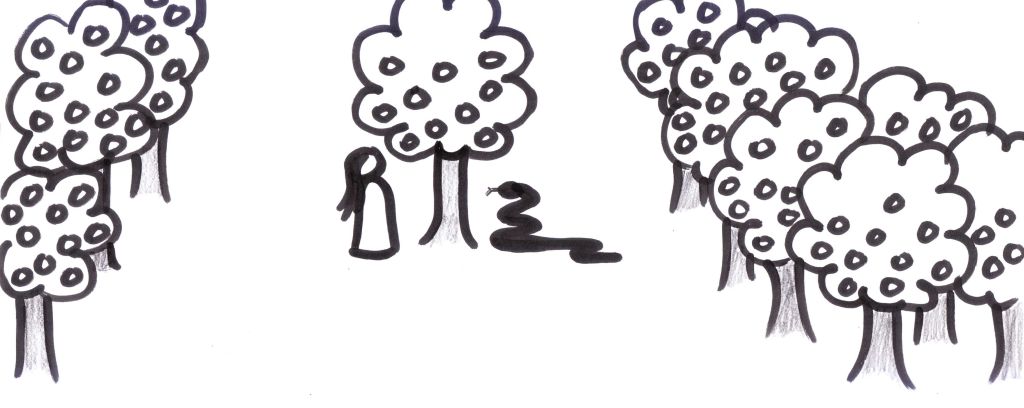
- Gen 3:1 “Now the serpent was more crafty than any other wild animal that the LORD God had made…”
- Here we get this snake that talks. Snakes don’t talk. No animals talk. Clearly this is something out of the ordinary. Rev 20:2 says that devil = Satan = dragon = ancient snake. Satan uses the appearance of an animal, which is – of course – not the animal’s fault. But it is interesting that ever since this story there is a ‘fear of snakes’ on humans. Snakes may be loathed, or worshiped (‘keep them happy so they don’t attack’ or ‘harness their power’), but nobody seems to be neutral to snakes.
- Satan is present, he is clearly evil, he is tempting, contradicting God, lying.
- But where does this evil Satan come from? Where does evil come from? We thought the world was good? Did God make Satan? But how can he make something evil?
- Basically there are three possible answers to these questions: Monism, Dualism and the Biblical answer:
- Monism … God is good. God made everything. God must have made Satan. God must have made evil. The problem: He who makes evil is evil …
- Dualism … God is good. He does not make evil. He cannot have made Satan. Satan must be un-created and eternal like God. The problem: you end up with two eternal Gods, one good, one evil, fighting each other of completing each other somehow …
- Biblical answer: God is good. All things that are were created by him. He created Satan, but he created him good, like everything else. God created various things, among them 2 groups that have true choice: angels and humans. Some of these chose evil. Conclusion: God did not make evil, but he did create free choice, he did therefore make evil choices possible. He didn’t make evil, but he didn’t make evil impossible.
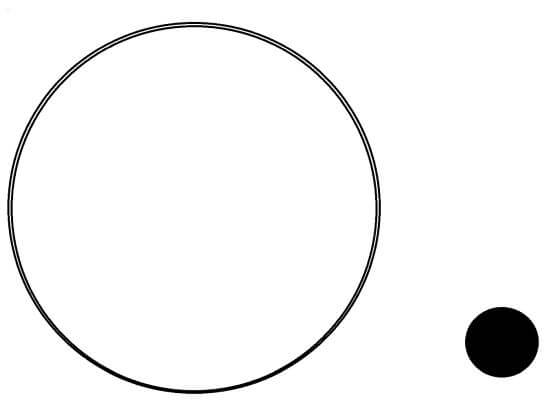
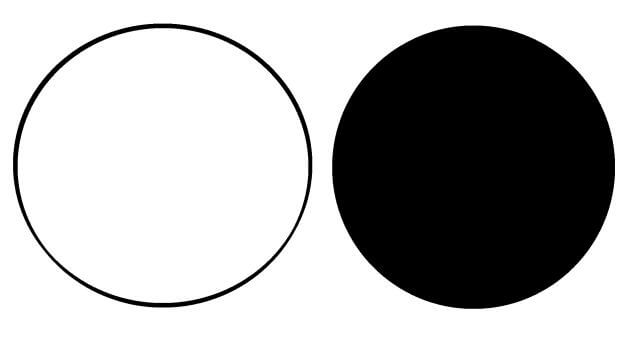
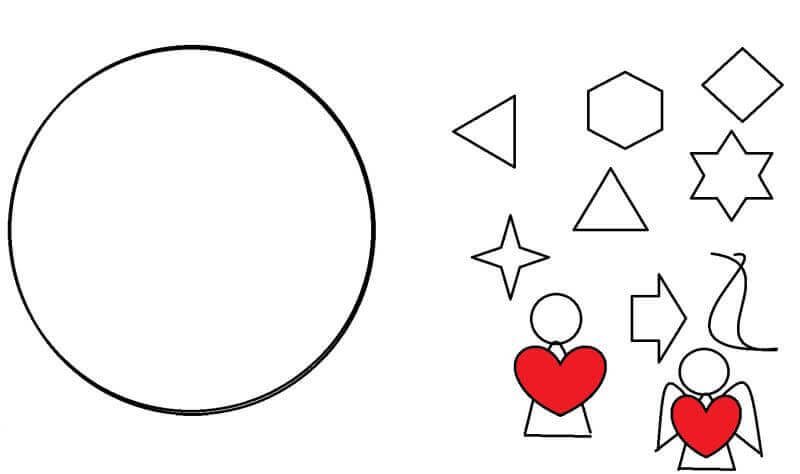
- Angels that chose against God are now called evil spirits, Satan being the famous one.
- Angels that stayed obedient to God are now called heavenly angels.
- There is no record of angels being asked to repent or given a chance to repent. Why?
- Probably because they rebelled against God in full view of his majesty, goodness, purity, that is: in full knowledge. Therefore their choice is permanent.
- Humans, on the other hand, understand about God only gradually, by conscience, by experiences, his voice in our hearts. Humans are like people groping through mist, gradually understanding and responding, that’s why they get the chance to repent.
Satan tempts to sin

- Gen 3:1 “Did God say “You shall not eat from any tree in the garden?” … Satan sowing doubt about God’s word, He is confusing (“any tree”) by mixing truth with lies. He is riding the victim line (‘poor you, all forbidden?’), sowing doubt about God’s goodness.
- Gen 3:2-3 Eve’s answer shows that she does know what the command is. She catches Satan’s attempt at confusion and clears it up (‘we may eat of any tree but not of the one tree’). She answers correctly. The only trouble: she adds “don’t touch it” … that was not in Gen 2:16-17.
- Is that a problem? Isn’t she just drawing the line a bit more harshly expressing care not to sin? This is how human additions to the law start (see the Pharisees).
- It may become a problem when in Gen 3:6 she plucks fruit (touching it) and nothing happens, she eats and passes fruit on. But all in all Eve is doing good here.
- Gen 3:4-5 Satan: “you will not die” … now he is directly contradicting the word of God, declaring it a lie. But worse: he is declaring God a liar.
- In order to cover for the audacity, a reason must be given: “for God knows that when you eat of it your eyes will be opened and you will be like God, knowing good and evil”. Actually: they are already ‘like God’ or “in his image” (Gen 1:27)!
- Satan charges God with selfish motives, with fear, with wanting to withhold from the humans, wanting to keep them small and stupid, not wanting to lose his special status.
- Up to now Adam and Eve have seen no behavior of God that remotely supports this assumption: God has created them, blessed them, given them dominion, given them good commands, has fellowship with them. There is no reason they should doubt him.
- Up to now Adam and Eve have seen no behavior of Satan, that should make them trust him, and trust him more than God.
- Why are they not taking this issue back to God, asking: “God, why is this tree forbidden?” Wouldn’t knowledge of good and evil be a good thing? How should we know good and evil if not by this tree? Will you teach us?
- Satan’s basic temptations (which haven’t changed for the last ten something thousand years) are confusion, half-lies, casting doubt about the word and character of God, playing on our desires, giving false promises, telling us we need to ‘fend for ourselves’
- Basically what humans need to do is to trust God’s goodness, to make him their point of reference, to believe: trust and obey. Still today this is what God desires.
The Fall
- Gen 3:6 Eve takes fruits, eats and gives some to Adam who also eats.
- Often the picture we have in our mind is one of Adam being elsewhere, her taking him fruit, he doesn’t know what he is eating, or else she lures him into eating
- From this view then it is concluded that women are more easily tempted than men, sin more easily than men, and that women are a snare to men.
- To support this view: Gen 3:17 is quoted: Adam is held accountable for listening to her voice, so she must have spoken to him, tempted him, persuaded him to sin.
- Against this view is Gen 3:6 itself …“she gave some to her husband who was with her”
- For Adam to eat unknowingly would not have been sin. Sin is choosing against God knowingly. Also in Gen 3:8-13 God first addresses the man, and holds the man equally accountable for the sin.
- The story doesn’t so much try to show their difference in regard to sin, rather: both ate, both ate consciously, both sin, both are held accountable.
- So here the amended picture:
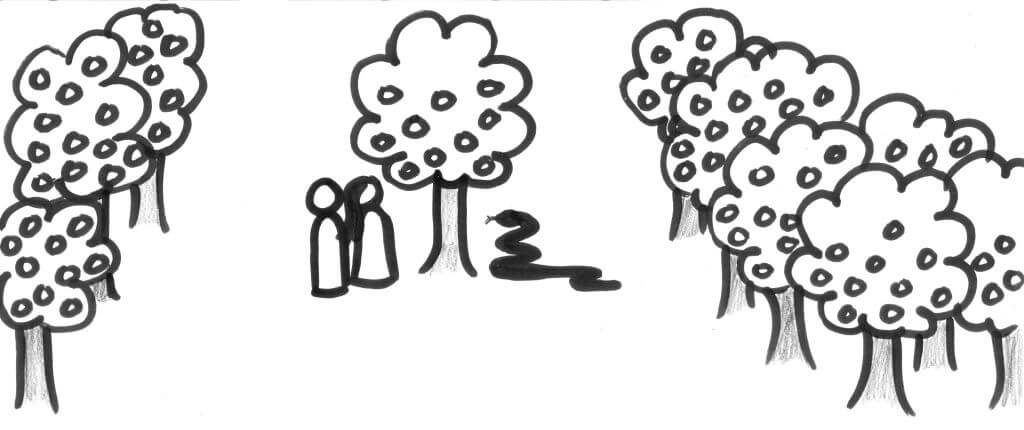
Happenings after the Fall
- Gen 3:7-13 describes the first immediate effects of the sin:
- Gen 3:7 “their eyes were opened…” and they didn’t die. So Satan said the truth (Gen 3:5) and God lied (Gen 2:16)?? This needs to be looked at more carefully:
- Sin has lead to them knowing that they are naked. How come?
- Gen 2:25 said that “they were naked, and unashamed”. In our sinful ears this sounds like they are naive, innocent, but backward and stupid. We smile at it, look down on it.
- But what does it really mean? Why, really, are they unashamed? Well, what is there to be ashamed of? The body God gave them? Surely not.
- This is the beauty of sin-lessness: There is nothing to be ashamed of, nothing to hide, no fear, no shame; just frank, open, transparent relationship. This is what humans hunger for ever since: to be accepted just as I am, no conditions, no hiding, no pretending. This is what people seek in marriage, and may or may not get it. This is what we ultimately get in Jesus: an acceptance, a cleansing, all shame washed away, a new righteousness, a fresh start.
- So: because of sin, they understand their nakedness, shame. They cover up, hide, are fearful, get bitten by conscience. This shows: Relationship with self is broken
- Shame means: I do not feel at home with myself any more, I don’t like myself, I am not at peace with myself, I have to hide, to filter … if others knew what really goes on in me! I compare, compete, I put myself forward, try to look good, I put down others. It’s a loss of inner freedom, self-confidence, peace … we all suffer with this till today.
- Gen 3:7 What does is mean “their eyes were opened”? They have more knowledge.
- Knowledge of what kind? shame, fear, pangs of conscience. New knowledge, but not good one. Sin will give you “more knowledge”, new ‘experiences’, things you didn’t know before you now know … but none are good.
- Gen 3:8-11 “the man and his wife hid themselves from the presence of God”. Sin has lead to hiding before God, avoiding fellowship with him, experiencing conviction and the bite of conscience. This shows: Relationship with God is broken
- Gen 3:8 How smart is it to hide before the all-knowing God behind a bush? If we sin, in one sense our knowledge increases (see above), but also our knowledge decreases: We now justify sin, explain sin, make excuses, rationalize that everyone does it. We choose to darken our minds, so we understand less of sin and its destructive effects.
- Gen 3:9 It is God, not man or woman, who initiates communication, who seeks the other out, who still wants fellowship, who tries to address the problem.
- “Where are you?” is not God not knowing which bush they hide behind. It is a soul-searching, conscience-awaking question: Where are you? Why are you hiding? What situation do you find yourself in? Where has sin taken you?
- Gen 3:10 Adam answers, but only describes the effects of sin, he does not trace the effects back to sin itself. Does he do that to cover up? Or because he doesn’t realize?
- Gen 3:11 … “Have you eaten from the tree of which I commanded you not to eat?” God leads him back to the reason, the origin of the problem. Adam up to now refused to see it or is confused. Either way: God clears it up and shows cause and effect.
- Why? God wants truth, he wants him to know (unlike what Satan claimed in Gen 3:5). God wants him to fully realize what he did, in order for him to take responsibility, to repent and ask for forgiveness. Where there is no understanding of sin, there is no repentance. For God to give conviction is grace, so as to make repentance possible.
- Gen 3:12 … Adam answers: “The woman whom you gave to be with me she gave me fruit from the tree, and I ate” He confesses (only what is already known), but takes no responsibility for his sin. Rather Adam blames Eve. He now is trying to hide his skin by ‘sacrificing her’, revealing selfishness, lying, irresponsibility. This shows: Relationship between humans is broken
- Not only that, he actually blames God himself, who has given him Eve! “the woman you gave me”. How smart is that? Has their understanding improved or deteriorated??
- Gen 3:13 God addresses the woman equally. Eve answers: “The serpent tricked me, and I ate.” Sadly Eve doesn’t do any better than Adam: she blames Satan and the circumstances (and indirectly God, who allows the circumstances). She neither takes any responsibility or repents.
- To blame my fellow-humans, to blame Satan, to blame God, to blame circumstances – it all comes down to the same thing. Lastly all our bitterness is against God.
- The main point is that I am refusing to take responsibility for myself, and therefore close for myself the doors of repentance. God doesn’t close them, I do.
Consequences of the Fall
- Gen 3:17-19 Addressing Adam: his work now will be hard toil, surviving will be a challenge. This shows: Relationship with Creation is broken
- Gen 3:17 The ground is cursed, Satan is cursed, but humans are not cursed. Is this curse a God-intervention or simply a description of a natural consequence of sin?
- Gen 3:19 For the first time there is a prediction of physical death … “out of the ground you were taken, to the ground you will return”. It seems that death was not part of God’s original creation but a thing brought on by our sin. “For the wages of sin is death” (Rom 6:23).
- Gen 3:16 God addresses Eve: now bearing children will be filled with pain. Also “your desire shall be for your husband (some translate: position of your husband), but he shall rule over you.”
- Two interpretations of this verse are possible:
- this is a command of God … this is now God’s will: husbands should rule wives
- this is a description of the reality of sin … this is not God’s will, but a sad reality that husbands often rule, but actually husbands should not rule.
- Different people interpret differently. Those who think Eve had a much greater role in bringing in sin usually go with option 1 (it is a command), for she sinned more and must be controlled now. Adam gets rewarded whereas Eve gets punished. God now wants hierarchy.
- But has the Trinity in whose image they are really changed? Has the will of God really changed? And: if Jesus came to undo the effects of sin, how far does his redemption go? Will Jesus’ redemption not cure this effect of sin also and improve the marriage relationships?
- Also: When in Mrk 10:1-9 the Pharisees come to Jesus interpreting the law to give them the freedom to divorce their wives (though not for the wives to divorce their husbands), Jesus accuses them of “hardness of heart”. He takes them right back: “But from the beginning of creation …” and proceeds to quote Gen 2:24. Jesus acknowledges the reality of sin, but to understand what God’s heart is and what he really desires, you have to go to Genesis 1 & 2, not to Genesis 3 .
A redemption promised
- Gen 3:15 “I will put enmity between you and the woman, and between your offspring and hers; he will strike your head, and you will strike his heel.”
- A promise of a Redeemer is given: this is the first prediction in the Bible about Jesus. This passage is also held to be messianic by Jews who do not accept Christ.. “strike his heel” refers to Jesus’ suffering on the cross. “strike his (snake’s) head” refers to Jesus defeating Satan.
- God’s heart of grace is revealed: Right after their cold unbelief, their unjustified doubt about his character, their disobedience, their refusal to repent – still God in his grace promises a Savior, promises to die on a cross to redeem this disaster.
- God leaves another picture with them as they now continue their sinful lives on earth: Gen 3:21 “God made garments of skins for the man and for his wife, and clothed them.” This is the first death in history. An animal has to die to cover their shame. The wages of sin is death (Rom 6:23). Without blood there is no remission of sin (Heb 9:22). Important truths are held before their eyes. These truths will be displayed even more clearly when God will institute the sacrificial system (Lev 1-7) and they will be ultimately fulfilled by Jesus’ death on the cross.
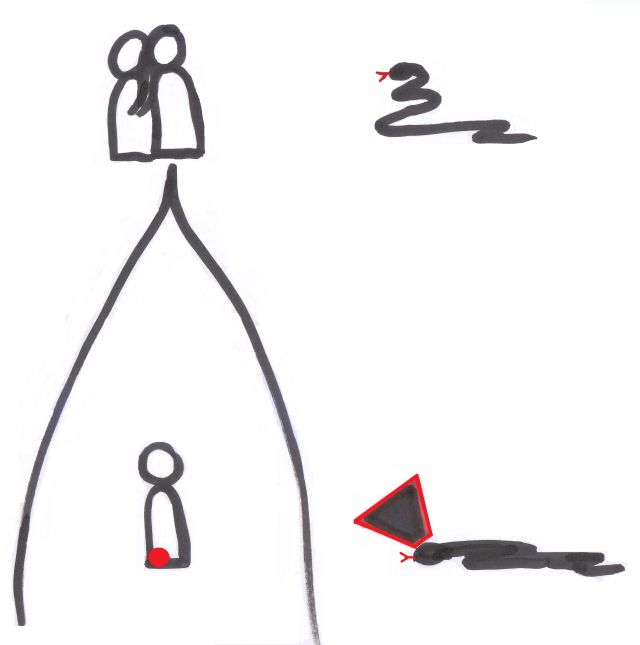
Summary
- 1 Relationship with self broken
- > shame, fear, hiding, pretense, unpeace, inferiority, self-doubt, lack of confidence, depression, mental disease, self-harming, suicide.
- 2 Relationship with God broken
- > this is the definition of death. So they do die immediately a spiritual death. > lie, deception, false hopes, false beliefs, idolatry.
- 3 Relationship with humans broken
- > blaming, selfishness, sacrificing the other, hurt, abuse, dominance, violence, oppression, murder, war, death > human injustice in all its forms.
- 4 Relationship with creation broken
- > world affected, now deterioration, decreased fruitfulness, lack, hunger, disease, catastrophes, destruction, death.
- Through sin – a rejection of the God of relationship – all relationships are broken: with him, with ourselves, with each other and with creation.
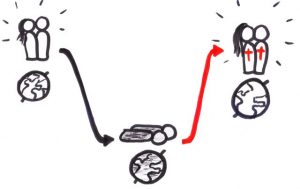
- But equally the redemption Christ brings is (and fully will) be a redemption and restoration of all relationships:
- 1 with God … we are forgiven, accepted, saved, adopted as children & heirs
- 2 with ourselves … Jesus wipes away all shame, gives peace and heals us
- 3 with others … we are brothers, committed to love and serve each other and all
- 4 with creation … we are re-instated as caretakers and developers of this world
- Rom 8:17-23 Creation was subjected to us humans (Ge 1:28). When we humans fell creation fell with us. When we humans will be fully restored in Christ creation will also be fully restored:
A Case Study to better understand the Nature of Sin
- Suppose your younger sister was raped by the village leader’s son and his gang. What consequences will there be … for your sister? for her little sister? for you? for your father?
- A church team comes to the village to preach the gospel. They preach that Je-sus can forgive anything. A young man comes crying to the front, he confesses to having raped a girl.
- Will God forgive him? Will he go to hea-ven? How do you feel about that?
- Will the effects of the sin on your sister will have vanished? Where is justice?
- This is why Jesus had to die: in the cross the justice and the mercy of God are equally displayed.
- If the church team disciples the rapist well, what will they tell him to do?
- Ask for forgiveness
- take responsibility for his actions
- make restitution
- turn himself over to the police to be tried under the law of the land
